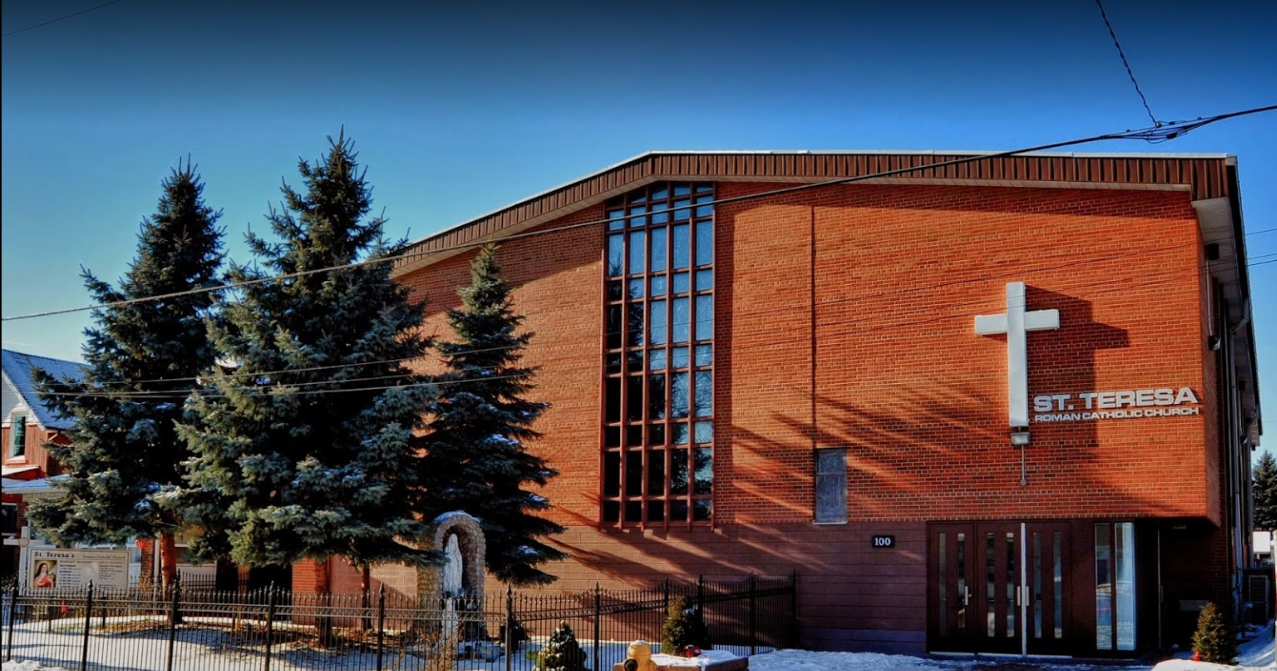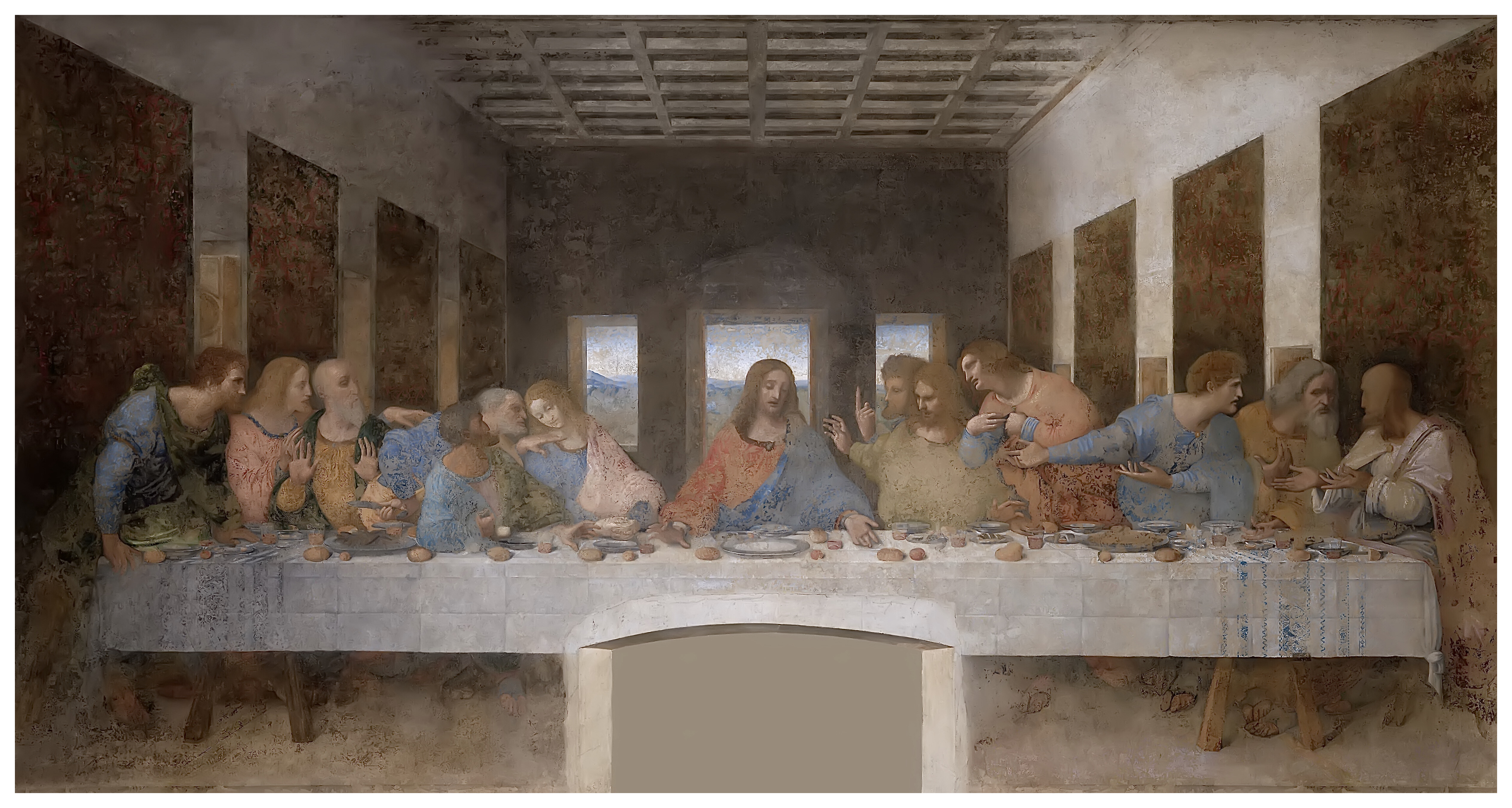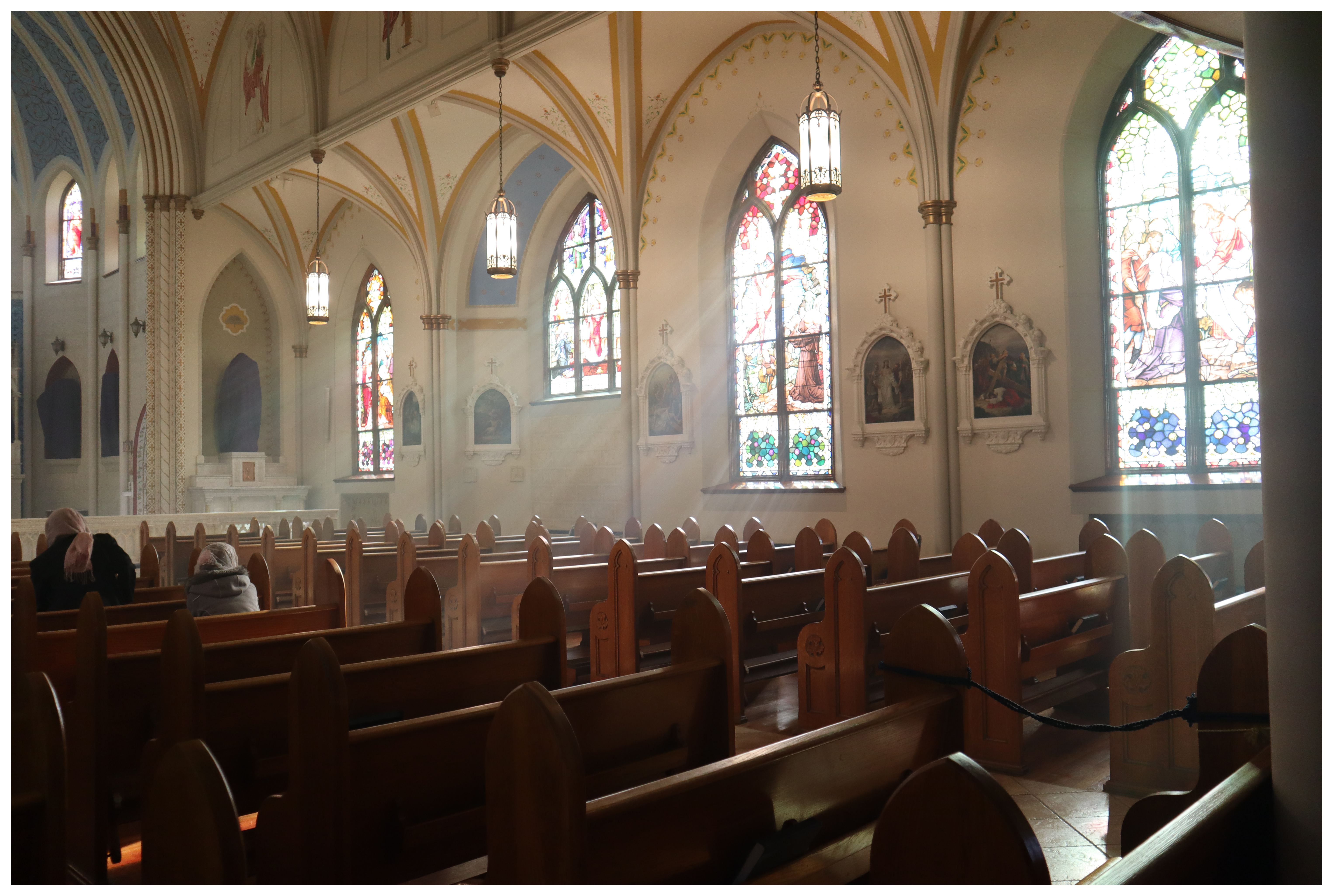
Preparing Our Hearts for the Greatest Gift of All - Part 1 of 3
This reflection is based on the readings for the Fifteenth Sunday for Ordinary Time—Year A: Isaiah 55: 10-11; Psalm 65; Romans 8: 18-23; and Matthew 13:1-23.
A few months ago, the pastoral council at St. Peter’s church in Toronto conducted a survey asking parishioners about some of the things that they would like to see happening in their parish. The results of that survey indicated four major themes: 1) Continuing faith formation; 2) more socials and community building events; 3) the need for greater participation and understanding of the liturgy; and 4) continuing the parish’s multiple outreach efforts to the poor in our community. In an effort to respond to the feedback of our parishioners, I thought it would be important to take this opportunity to write about the Mass; what it is that we are celebrating at Mass; and what the Eucharist calls us to be in our local community.
The importance of understanding the Mass, and who it is that we receive in the Eucharist, is a theme which also goes well with the Gospel readings over the next few Sundays. In this Sunday’s Gospel, we hear of a sower who generously distributed the seed, but that it did not grow equally everywhere that it was spread. There were some places that it grew very abundantly and others where it did not yield much fruit at all. Depending on the soil that it landed in, the seed grew well or did not grow at all. This can also happen to us when we come to Mass. The Eucharist was referred to by many Church Fathers as the seed of eternal life, in which Christ gives us His Body and Blood. If we come to Mass not fully aware of what we are doing, or with hearts that are not open to the gift that we are to receive, the Eucharist can be given in vain and it may not bear the fruit that Christ intended it to yield within our hearts. For all of us, it becomes easier for us to participate in the Eucharist if we know why we are doing certain things; and we benefit more from what we hear and receive when we are truly familiar with the gift that is being given. A more complete understanding of what we are doing at the Eucharist can be a means of preparing the ground of our souls to receive the tremendous gift of Christ’s Body and Blood and provide a more fertile means for this gift to bear more abundant fruit.
Over the next short while, I would like to spend some time going over the Mass and explaining a little bit about why we do what we do at Mass and how the celebration of the Eucharist might bear more fruit in our faith lives. In preparing these reflections, I thought I would divide them up into three different topics. In this piece, I will write about what the Mass is and why we celebrate it each Sunday. In my next reflection, I will write about the first two parts of the Mass, those being the Entrance Rites and the Liturgy of the Word. Following that, I will write about the Liturgy of the Eucharist and the Dismissal Rites.

The most important thing about the Eucharist, and the only reason why we celebrate it, is that Jesus told us to do so in memory of Him. The Eucharist has a central place in all of the Gospels and New Testament writings. It is what makes the Christian community. As the end of His time on earth approached, Jesus gathered His disciples to celebrate with them the Last Supper. The Last Supper is presented in some of the Gospels as a Passover Meal celebrated by Jesus with His Jewish Apostles. The Jews celebrated Passover in obedience to God’s command to Moses to recount the way in which God had saved the people of Israel from slavery in Egypt and delivered them to freedom in the Promised Land. Exodus chapter 12 recounts how God had commanded them to do this in order to recall how God had made them His people and saved them. As they celebrated the meal, the Scriptures were read to them and they heard the story of how God had saved them. The unleavened bread reminded them of the fact that they had to flee for their lives and did not have time to prepare the bread properly. This is why we use unleavened bread at Mass. As they recounted how God saved them, the Jews remembered how God had intervened in history to form them into His chosen people. The Passover Meal was a remembrance of the Covenant that God had formed with His people. It was celebrated to remind them of what God had done for them when he delivered them from Egypt to the Promised Land.
At the end of His ministry, Jesus arranged to celebrate this Passover Meal with His disciples and did something radically different. Once they have gathered at the table, He announced that He wished to give them a New Covenant; one that will be formed in His Body and Blood. Knowing that He was about to be betrayed by Judas, and handed over for crucifixion, Jesus told His disciples that He was giving them His Body and Blood to eat and drink so that they might live a New Covenant that will be formed by the spilling of His blood. By identifying this meal with the sacrifice that He is about to make for the “forgiveness of sins,” Jesus identifies the bread and wine as His Body and Blood and gives it a new significance and identity. As He did this, He told His disciples, who did not yet understand what is happening, that they were to celebrate this in memory of Him. At the Last Supper, Jesus identified the bread and wine as His Body and Blood that would be given to save the sins of all. Whereas the Passover meal celebrated that God delivered the People of Israel to the Promised Land, where they would live free from slavery in His presence, Jesus established the Last Supper as that meal that commemorated His sacrifice and gave us His Body and Blood to free us from death and so that He might dwell in us, wherever we might be, until the end of time.
"Jesus told His disciples, who did not yet understand what is happening, that they were to celebrate this in memory of Him. At the Last Supper, Jesus identified the bread and wine as His Body and Blood that would be given to save the sins of all."
I mentioned that some of the Gospels present the Last Supper as a Passover Meal. The one that does not is the Gospel of John. In John’s Gospel, the Last Supper is presented as a meal which takes place on the night before the Passover. Some scholars say that it might have been common at that time for friends to celebrate the Passover together earlier, while the main celebration would have taken place with the family on the night of the 14th of Nissan. However, there is a more important reason why John has the Last Supper on the night before the Passover. On the night before the Passover, the Jews would have sacrificed the paschal lambs in the temple. These would then be taken home to be eaten by the families the next night. The lambs were sacrificed to remember the blood of the lambs that were placed on the doorposts of the Israelites to save their first born when the angel of death passed over Egypt. John presents Jesus as the Lamb of God who takes away the sins of the world and saves all people from their sins. By the sacrifice of His blood, Jesus is the Lamb of God who takes away the sins of the world. Every time that we celebrate Mass, we acknowledge this before we come to receive the Body and Blood of Christ in the Eucharist. In the Eucharist, we receive Christ and remember what He did to give us eternal life. This life is to begin “now” as He comes to dwell within us, through the power of the Holy Spirit, and invites us to live in communion with Him now, in order that we might live in Communion with Him for all eternity.
As we read the accounts of the Last Supper in the Gospels, it is clear that the disciples did not understand at the time what Jesus was doing. In fact, it was impossible that they could understand until He had risen from the dead. Following the meal, when Jesus was arrested, the disciples all ran away in fear. The only one to remain at His side was John and the Blessed Mother, who watched at the cross. It was only after His resurrection that the disciples began to understand what he had done at the Last Supper. On the day that Jesus rose form the dead, being a Sunday, the first day of the week, Jesus began to appear to His disciples and explain the Scriptures to them, while breaking the bread with them (Luke 24:13-35). It was at these Sunday gatherings, when the Risen Christ Himself appeared to the disciples and broke the bread with them, that they began to understand that He had risen and that the Eucharist was the meal at which He would continue His presence with them. During the first forty days after His resurrection, Jesus Himself appeared in their midst to show Himself present with them. However, as He did on the Road to Emmaus, once they had recognized Him in the breaking of the bread, He did not need to remain present to them in any other form than his Body and Blood. Following His resurrection appearances, the Church would celebrate His resurrection every Sunday at the celebration of the Eucharist.

Following the example of Jesus’ resurrection appearances, the Church learned to do what Jesus had commanded them to do “in memory of Him” every Sunday. As the day on which Jesus rose from the dead, Sunday is the day on which the Church celebrates all of creation being renewed and saved. In the Old Covenant, the Jews rested on the day that God rested after creating the world. Christians observed the day of rest on the day that Christ had renewed all of creation by His resurrection. In fact, from the Christian perspective, there would have been no point in God creating humanity if we were doomed simply to die. Christ redeemed and recreated the world by His resurrection. His death and resurrection restored all that had been lost by original sin. Had he not redeemed us, all of God’s work of creation would have been lost and in vain.
This salvation is what we are called to celebrate every Sunday. It is why Sunday is different from any other day. While a person can go to Mass every day of the week, Catholics are obliged to go to Mass on Sundays to remember what Christ has done for us in His resurrection and to do what He has commanded us to do “in memory of Him.” As we receive Christ’s Body and Blood in the Eucharist, Christ Himself is again present to us as He was to the early disciples and we are called to be His presence in the world today. At each Mass, we listen to His Word and encounter His true presence in the Eucharist. After we have heard His Word proclaimed for us today and eaten His Body and Blood, we are sent into the world to continue His work. As this Sunday’s readings speak to us of the seed that is sown, we are reminded that we must each prepare our hearts to encounter Christ in the Mass, and that this preparation and the understanding that we bring to the Eucharist, are an essential part of the preparation that we give the soil of our hearts to receive Him in Word and Sacrament.
In my next piece, we will look at the first two parts of the Mass - the Entrance Rites and the Liturgy of the Word. Following that, we will look at the Liturgy of the Eucharist and the Dismissal Rites. This will assist us to prepare our hearts to receive the gift that is given to us each time we celebrate the Eucharist.
May we always be aware of the precious gift we receive in the Eucharist.
Fr. Michael McGourty is Pastor of St. Peter’s Church in downtown Toronto.
